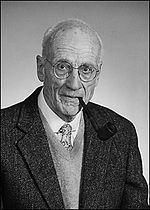Theodor Adorno Quotes - Page 5

The first and only principle of sexual ethics: the accuser is always in the wrong.
Theodor W. Adorno, E. F. N. Jephcott (2005). “Minima Moralia: Reflections on a Damaged Life”, p.50, Verso
Theodor W. Adorno, E. F. N. Jephcott (2005). “Minima Moralia: Reflections on a Damaged Life”, p.218, Verso
Theodor W. Adorno, E. F. N. Jephcott (2005). “Minima Moralia: Reflections on a Damaged Life”, p.78, Verso
Theodor W. Adorno, E. F. N. Jephcott (2005). “Minima Moralia: Reflections on a Damaged Life”, p.15, Verso
Theodor W. Adorno, E. F. N. Jephcott (2005). “Minima Moralia: Reflections on a Damaged Life”, p.154, Verso
Theodor W. Adorno, E. F. N. Jephcott (2005). “Minima Moralia: Reflections on a Damaged Life”, p.200, Verso
Everything that has ever been called folk art has always reflected domination.
Theodor W. Adorno, E. F. N. Jephcott (2005). “Minima Moralia: Reflections on a Damaged Life”, p.204, Verso
Theodor W. Adorno, E. F. N. Jephcott (2005). “Minima Moralia: Reflections on a Damaged Life”, p.141, Verso
Theodor W. Adorno, E. F. N. Jephcott (2005). “Minima Moralia: Reflections on a Damaged Life”, p.128, Verso
Theodor W. Adorno, Rolf Tiedemann (2003). “Can One Live After Auschwitz?: A Philosophical Reader”, p.161, Stanford University Press
Theodor W. Adorno, E. F. N. Jephcott (2005). “Minima Moralia: Reflections on a Damaged Life”, p.185, Verso
Theodor W. Adorno, E. F. N. Jephcott (2005). “Minima Moralia: Reflections on a Damaged Life”, p.166, Verso
The specific is not exclusive: it lacks the aspiration to totality.
Theodor W. Adorno, E. F. N. Jephcott (2005). “Minima Moralia: Reflections on a Damaged Life”, p.79, Verso
None of the abstract concepts comes closer to fulfilled utopia than that of eternal peace.
Theodor W. Adorno, E. F. N. Jephcott (2005). “Minima Moralia: Reflections on a Damaged Life”, p.157, Verso
The power of works of art still continues to be secretly nourished by imitation... kitsch
Theodor W. Adorno, Richard D. Leppert, Susan H. Gillespie (2002). “Essays on Music: Theodor W. Adorno ; Selected, with Introduction, Commentary, and Notes by Richard Leppert ; New Translations by Susan H. Gillespie”, p.364, Univ of California Press
Theodor W. Adorno (2015). “Introduction to Sociology”, p.103, John Wiley & Sons
Theodor Adorno, Richard Leppert, Susan H. Gillespie (2002). “Essays on Music”, p.363, Univ of California Press
The recent past always presents itself as if destroyed by catastrophes.
Theodor W. Adorno, E. F. N. Jephcott (2005). “Minima Moralia: Reflections on a Damaged Life”, p.49, Verso
Theodor Adorno, Richard Leppert, Susan H. Gillespie (2002). “Essays on Music”, p.38, Univ of California Press
Words of the jargon sound as if they said something higher than what they mean.
Theodor Adorno (2013). “The Jargon of Authenticity”, p.6, Routledge
Not only is the self entwined in society; it owes society its existence in the most literal sense.
Theodor W. Adorno, E. F. N. Jephcott (2005). “Minima Moralia: Reflections on a Damaged Life”, p.154, Verso
Philosophy ... must not bargain away anything of the emphatic concept of truth.
Theodor Adorno, Richard Leppert, Susan H. Gillespie (2002). “Essays on Music”, p.38, Univ of California Press






